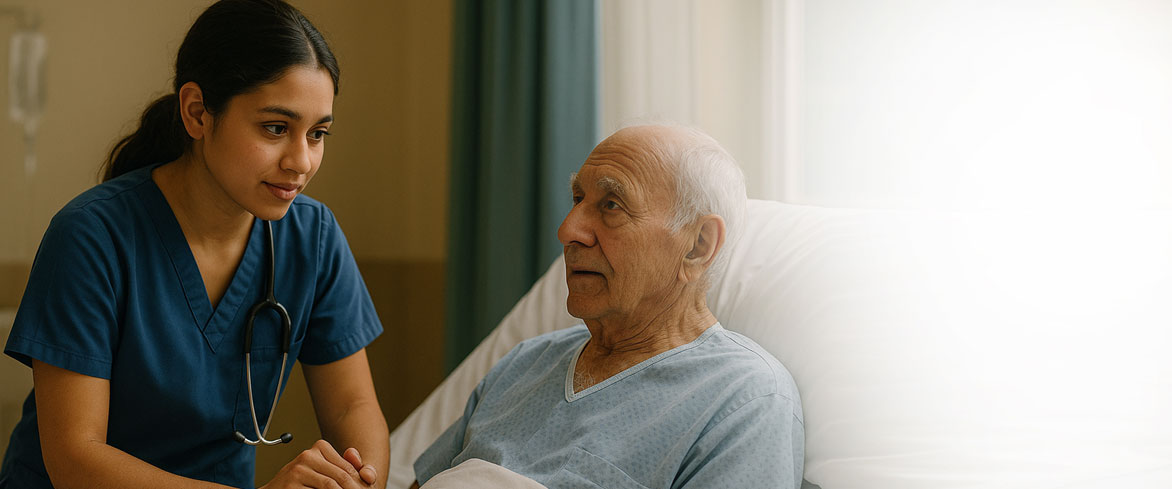
Parkinson’s Disease (PD) is a progressive movement disorder of the nervous system that primarily affects nerve cells in the brain that produce dopamine, a chemical messenger crucial for movement control. This loss of dopamine results in impaired movement, balance and coordination. The characteristic symptoms of Parkinson’s Disease are tremors, stiffness, and slow movements.
While it can develop in younger adults, it most commonly affects those over the age of 60. As the condition progresses, elderly individuals often require increasing levels of care and support to maintain their quality of life. Caring for someone with Parkinson’s is challenging to say the least, requiring immense amounts of patience and understanding.
While Parkinson’s Disease is quite a serious ailment, In older adults it can be even more complex due to coexisting health issues like arthritis, heart disease or dementia. The impact is that much more on the elderly. In fact, symptoms such as tremors, rigidity, slowness of movement (bradykinesia) and postural instability can significantly impact daily living of the elderly. Additionally, non-motor symptoms like depression, sleep disturbances, memory problems and fatigue are common in the aged patients. Let’s look at the different ways elderly patients suffering from this disorder can be supported.
Creation of a supportive environment
>Creation of a supportive environment: A safe and supportive environment is a must to ensure effective care for elderly Parkinson’s Disease patients. One of the primary reasons for this is that falls are a major concern for elderly individuals with Parkinson’s due to balance issues. It is essential to remove tripping hazards, instal grab bars in bathrooms, ensure adequate lighting and use mobility aids like walkers or canes. It is equally important to arrange for adaptive clothing, non-slip footwear and ergonomic utensils to help the patient cope independently with daily tasks such as dressing, eating and grooming.
Medical Management
As with any other disease, proper medication management is crucial. This is even more relevant for elderly patients suffering from this disease. Parkinson’s medications need to be strictly taken at specific times to be effective and a strict regimen needs to be adhered to. If a patient misses a dose or takes it late, symptoms can increase. Hence punctuality in taking medicines is vital. Caregivers need to create and maintain a strict medication schedule and also monitor for side effects such as hallucinations, dizziness or nausea.
Care should also be taken to ensure that there are regular visits to neurologists and other specialists. This will ensure that the treatment plan is adjusted as the disease progresses. Different therapies like physical therapy, occupational therapy and speech therapy should also be employed as they are very effective at managing symptoms and maintaining function.
Emotional and Social Well-being
Apart from medication and timely visits to doctors, caring for the emotional health of Parkinson’s patients is just as important as managing their physical symptoms. This is because depression and anxiety are rife and should not be overlooked or dismissed as part of ageing or the disease. Professional counselling, support groups, and open communication can help the elderly feel heard and supported.
One of the most effective remedies to combat mental issues is to encourage social interaction of any kind, even something as simple as a regular chat with friends or family. This interaction serves to prevent isolation and boost mental health.
Support for the Caregiver
A fact that is often overlooked is the stress a caregiver for a Parkinson’s patient, especially an elderly one, undergoes. Caring for someone with Parkinson’s is undoubtedly both emotionally and physically taxing for the caregiver. Hence their wellbeing needs to be prioritised as well. It’s essential for caregivers to seek support, take breaks and attend to their own well-being. After all, only when they stay healthy and happy can they effectively care for a person afflicted with Parkinson’s.
As is evident by now, caring for an elderly person with Parkinson’s disease requires a holistic approach that addresses both physical and emotional needs. The right support system, proper medical care and compassionate touch ensures that individuals living with Parkinson’s can experience dignity, comfort and a better quality of life. As the disease progresses, the role of caregivers becomes even more crucial.